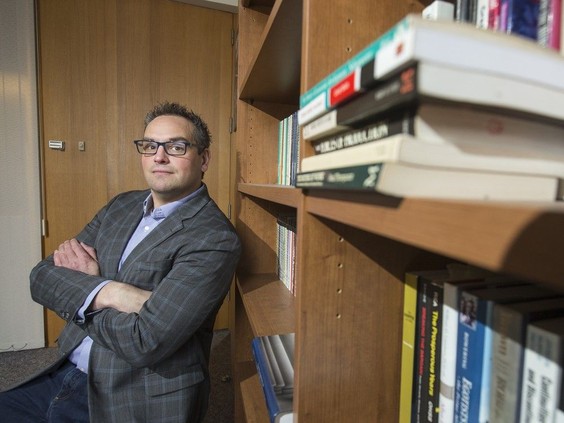
“It’s not a home run, but it’s in the ball park,” said University of Saskatchewan political science professor Charles Smith.
Angela Amato
Regina Leader-Post
While Saskatchewan teachers consider a revised binding arbitration offer from the province, questions of whether it’s an effective method to address classroom complexity emerge.
“When you go to arbitration, you can’t send too many things because arbitrators don’t like that,” said president of the Ontario English Catholic Teachers’ Association (OECTA) René Jansen in de Wal in a recent interview. The OECTA reached a tentative deal this spring, but some items left unresolved, like compensation, have been sent to arbitration.
“They want a fairly narrow scope, and they are better equipped to deal with things that are more numeric, like salary.”
But one Saskatchewan expert says it could be the best option left considering that negotiations between the Saskatchewan Teachers’ Federation (STF) and the government have dragged out for nearly a year.
“I think it’s a positive step forward because the STF has said repeatedly that class complexity is kind of their main issue going into negotiations and the government kept saying no, full stop,” said Charles Smith, a political science professor at the University of Saskatchewan, in an interview Thursday.
“Now it seems like they’re willing to compromise on that or at least open the door to it,” he added. “It’s not a home run, but it’s in the ball park.”
Although Smith agrees that arbitrators are typically more keen on evaluating issues related to numbers like salary, he says most arbitrators are lawyers who have expertise in dealing with how legal contracts can address complex workplaces.
“I don’t think it would be so outside the realm of possibility for an arbitrator,” Smith argued.
Last week, the STF turned down the province’s offer to go into binding arbitration. President Samantha Becotte said the best deals are made at the bargaining table and that the length of the arbitration process could potentially stall additional supports for students heading back to school in September. Back in March, the federation proposed binding arbitration on the single issue of class size and complexity, which was refused by the province.
According to The Education Act, mutually-agreed-upon issues that are brought to binding arbitration are evaluated by a board, rather than a single person like in other disputes under The Saskatchewan Employment Act. Both parties have to agree on each member of the board before the process can move forward.
With a provincial election closing in and the next school year on the horizon, Smith speculates that both parties want to come to an agreement sooner rather than later.
“There’s been lots of bad blood,” said Smith. “But I think there’s an urgency on both sides to get this thing settled.”
“It would be best if the parties themselves could come to an agreement and not have to bring in outside intervention, but given the way this bargaining is going, maybe the best solution is a third-party intervention to try and lower the temperature a bit,” he added.
Teachers are currently participating in information sessions detailing two possible paths forward, according to an STF statement made Wednesday.
Option 1 includes continued job action with the potential for the government-trustee bargaining committee (GTBC) to change its mandate and return to negotiations, and the “possibility of a forced resolution.”
Option 2 includes an agreement to binding arbitration for wages and a class complexity framework, with all other previously agreed to matters being part of the arbitrated agreement.
The statement came after an email to the STF executive that said the province had revised its binding arbitration offer on June 8 to include a class complexity framework and wages was provided to the Leader-Post.
While the province says the offer isn’t new, and that it “has and continues to offer binding arbitration on matters of wages and on accountability framework/classroom supports,” in his most recent address to media, Education Minister Jeremy Cockrill maintained that classroom complexity and composition would not be part of a new contract.
This advertisement has not loaded yet, but your article continues below.
Article content
A rejected contract offer made by the government last month included the creation of a special task force and language referencing an accountability framework included in a proposed memorandum of understanding (MOU) that would exist outside of a new contract. The MOU promises increased education funding but is not binding. The offer also added an extra $18 million in funding annually to address class size and complexity, which critics say won’t go very far.
The STF says it will make an announcement on the members’ decision Friday afternoon.

